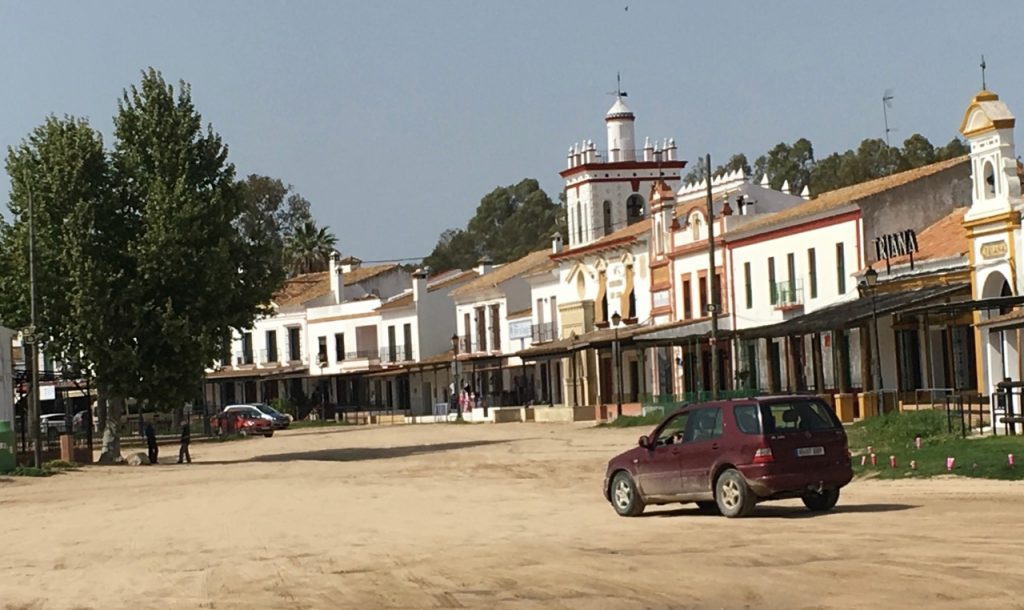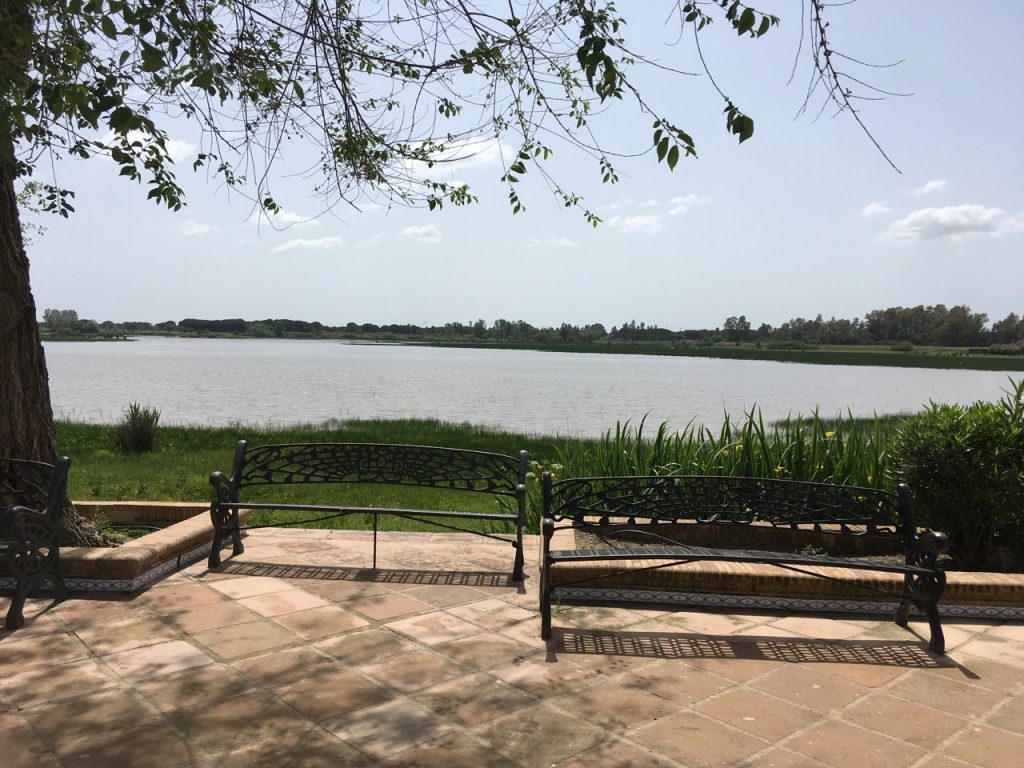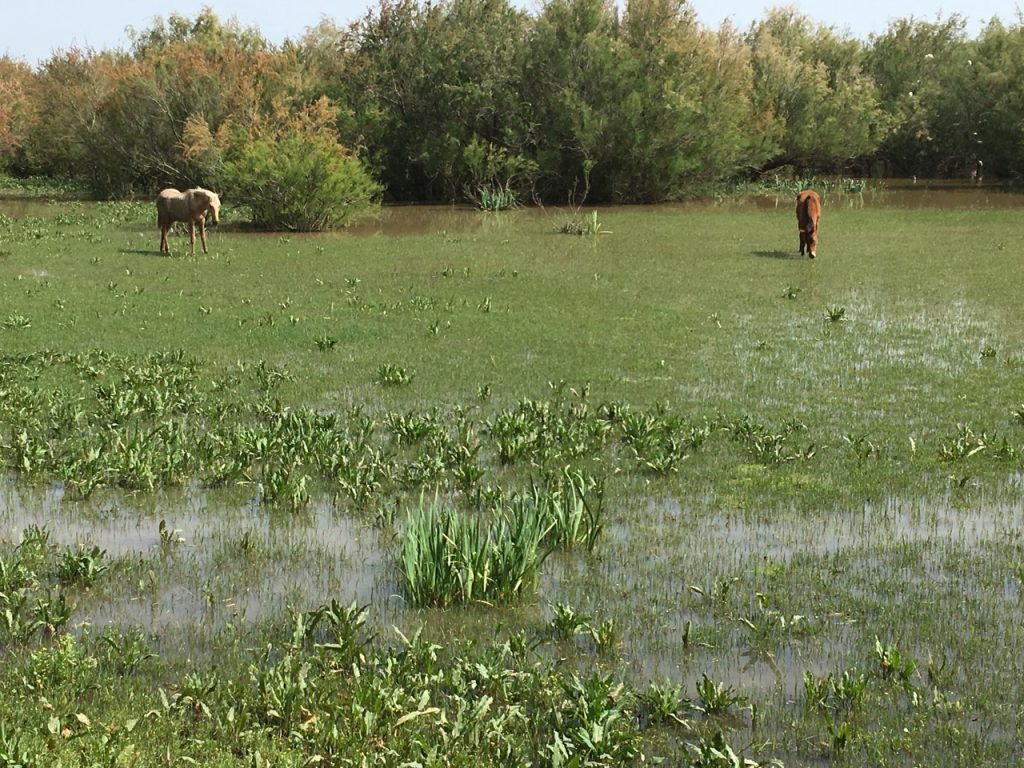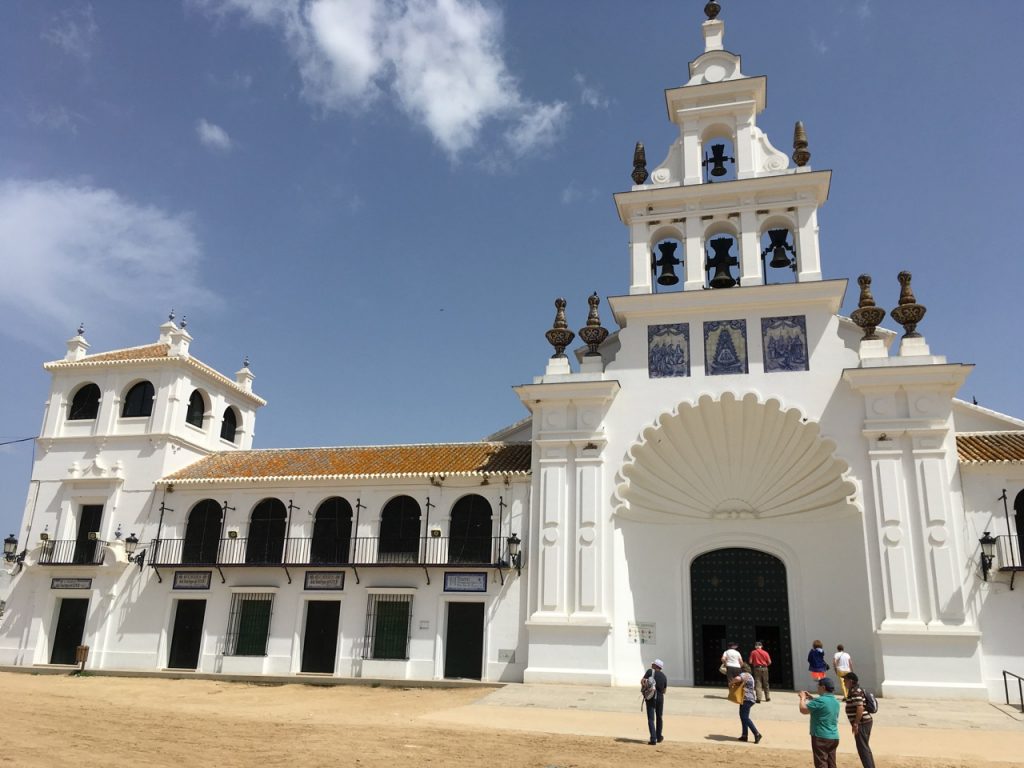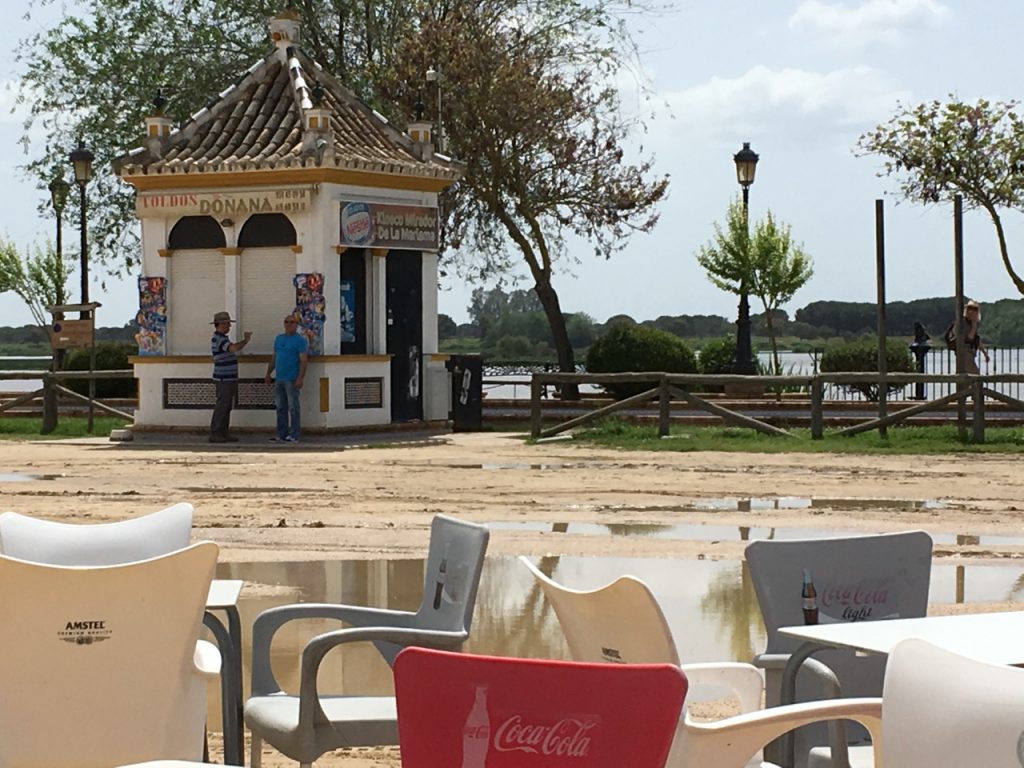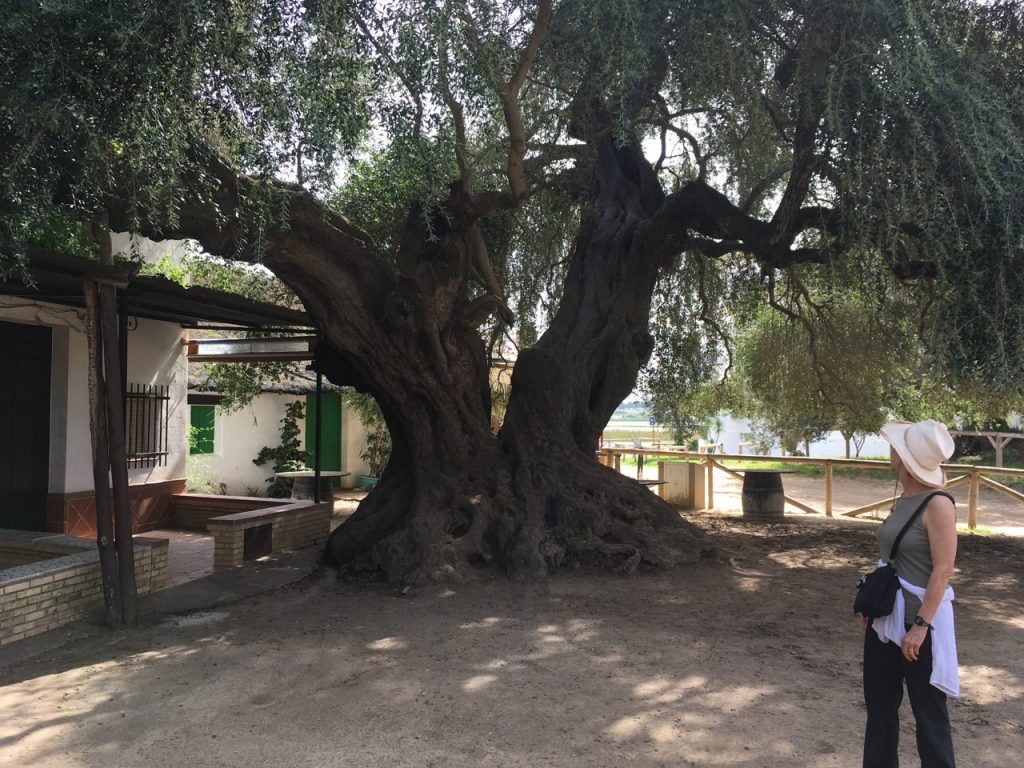“1492 was a very important year here in Spain, no?” I asked.
Michael stroked his ragged, blondish-white beard. “Well, yes. The Moors finally were defeated, the Jews were dispersed, and that Italian fellow set off to the Eastern edge of the sea.
“But, really, what happened before was much more important, at least to this little town we’re going to. See, after the Romans were routed by the Visigoths, around 400 CE, the civilization started to go downhill. By the 600s, the Muslims, the Moors, were able to cross the Strait, and started conquering southern Spain. The Christians were told they had to convert, or die. A lot of them did convert, thinking it was just a temporary thing, the Moors would go away soon. But they had to hid all their icons, like little statues of the Virgin Mary. They buried them in out of the way places, hoping to dig them up again when the coast cleared.
“But it never did, and people forgot about all those statues and other ornaments from the early days of Christianity. Every now and them, one would be discovered, and it was thought to be a miracle. Here in El Rocîo, a small Virgin Mary was found hidden in a dead tree stump.
“Right away the place became a destination for pilgrims. People started coming from all over the area, every year, in early May, to celebrate the event. Eventually, each little town or neighborhood formed a ‘brotherhood’ which organized the trek. They would come with supplies for weeks, in ox-drawn carts, kind of like covered wagons.”
We were entering El Rocîo now. The road turned from faded asphalt to rutted sand.
“They still come the same old way; that’s why the streets are dirt, for the horses and oxen. See, there are posts everywhere to tie them up.”
He pointed at a wooden railing, the kind you’d see in a Western movie, where the cowboy who’s just hopped off his horse would casually throw the bridle reins once around to keep his mount from running away.
One side of the town butted up against a placid lake, fringed by reeds, and flecked with waterfowl, dipping and winging across its surface.
“Look, there are some wild horses!” Three mustangs clopped through the ten centimeter water at shoreline, one of them reluctant to take any steps at all, seeming to be held firm by the suction of the mud beneath. “Those horses are kind of like the ones roaming free in the Western US. Left behind by the Spaniards, never tamed by the Indians. These are the same breed, descendants of ones from Arabia, way back when the Moors were here.”
We drove all around the town, which mostly consisted of one-story white lodges named for the various brotherhoods. Michael continued, “People come here for the week. Maybe a million or more, the biggest gathering in all of Spain. They sleep maybe 40 or 80 people in each of these casitas. Some of them take a week to get here, stopping along the way at designated water troughs.”
At the center of town, the highest structure was, of course, the local church. This one was blindingly white-washed, with bells crowding archways in the steeple, and iron railings along the second floor windows.
“Look inside, you can see the Virgin they carry around at the festival. The guys compete to hold her, sometimes for hours at a time. Here at the steps, the ox carts form a long line snaking out of town. One at a time, they come up and pay their respects, then the oxen don’t turn around, they back up out of the plaza, and go to their casita. It’s really something to see.”
El Rocîo, even just a few weeks ahead of the grand event, was still basically a ghost town. A few cafeteria were open, and we parked ourselves under one’s umbrella, loading up on tapas and the local beverage.
Here at the southwest edge of Spain, the April sun was fierce. A brief walk along the lake shore drenched me in sweat, and forced Julana to bring out her fan. The bird watching hut we’d aimed for was closed, but just behind it, under the shade of ancient oaks, was a dirt arena. A sign, translated into English, read “Place for training horse”. And, indeed, a bored caballero was slowly turning in a circle, holding a leather rein extending out to a smartly groomed black mare prancing around him in endless circles.
Wild olive trees, one with a split trunk nearly two feet in diameter, loomed outside a shuttered restaurant. It was hard to imagine a scene as crowded as Mecca during the Hajj was only three weeks away. 